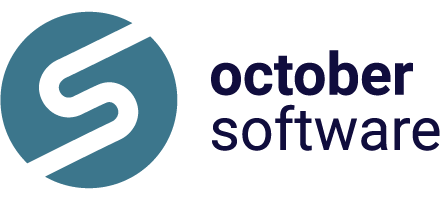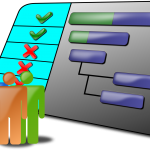How Small Businesses Can Leverage Big Data and Machine Learning
Data drives the Internet of Things (IoT) and the economy. It also drives great marketing campaigns and precise project management.
Can you think of a single thing that couldn’t benefit from the right data?
We can’t!
However, to leverage it, you have to collect it, organize it, query and analyze it properly.
Most small businesses have for a long time assumed that you need to be a large corporation to leverage data. Just look at all of the above – organize, query, analyze…
Big data for small businesses is a non-starter, right? Just think of all the personnel and the investment you’d need to get a big data or machine learning project off the ground.
Well, nothing could be farther from the truth.
We now live in an era where consumers are more connected, share valuable information and compare experiences with one another.
Now, this is what we like to call a data gold mine. Simply priceless!
You see, data collection and analysis can benefit both large and small organizations. Yes, big data for small businesses can be the growth booster they need.
But even having said that, for effective data analysis, you need the right kind of software and tools. You need to identify and incorporate tools that will help you accurately collect, process and apply insights from all the intel gathered.
Once you have your data collection and analysis sorted out, you now need to ensure that you have the right people to run with it.
You need to have a qualified and skilled team of data scientists and analysts, automation systems, processing solutions, and a structured environment.
This sounds scary but it’s actually doable.
We all know that small businesses operate with tiny budgets. You may not even have a budget to hire a skilled analyst or scientist. Which is absolutely fine.
Guess what?
You don’t need it.
The emergence of self-service solutions like the plug-and-play Atlas data warehouse are making it easy for small businesses to leverage data. These self-service solutions are transforming how small businesses derive insights from data discovery, even without technical expertise.
Atlas makes the leveraging of big data and machine learning a breeze. Click here to start your FREE, no-obligations trial.
Such a solution allows the small business owner to bring data from across their departments including sales, email click-through rates, and social media. Data gets collected at a central point and insights are derived from combined reports.
The advantages of having a tool like Atlas for the small business is that it can be used by anyone in the company — sales, accounting, marketing and project management teams can all benefit from a tool that gathers, parses and analyzes data only to filter the most relevant insights.
Having such a tool ensures that even the non-technical employees and executives can conduct evaluations that lead to quick and, more importantly, right decision making.
How Do You Make This Data User-Friendly?
I know what you’re thinking: even such a tool sounds intimidating and, quite possibly, a pain to use.
In most cases, small businesses must work with poorly designed dashboards and complicated Excel sheets that make it hard to make any sense of data. Others rely on instinct and intuition when making decisions.
This is a recipe for disaster!
Even though this is admirable, it would be hard to tell on which day of the week email open-rates are high, which features most customers like in a product and at what point the business turns leads into customers.
Big data for small businesses can turn into a nightmare if it’s not properly used.
This is where the right data warehouse solution steps into play.
It makes it easy for owners to get unexpected data, gain insights, compare patterns, and get real-time detailed project status reports which can later provide insights.
If all these don’t excite you, nothing will.
Now, with all this information, the small business owner can make decisions based on facts instead of intuition and speculation.
This, in turn, leads to high returns on investment since data received can be used to allocate resources, manpower and technology in an informed way.
How Small Businesses Make Smarter Decisions Using Big Data and Machine Learning
Big data for small businesses provides insights into market situations and also helps the small business owner better understand their customers’ needs, preferences and behavior.
Guess what, implementing machine learning AND big data takes this a notch higher.
Interesting, right?
You see, machine learning is an artificial intelligence application that allows systems to learn and improve from experience.
They are generally computer programs that can access data provided in a business and use it to predict future actions. For the small business owner, machine learning unveils hidden potentials of data accumulated by implementing solutions to some of the problems the business faces.
The machine learning market is expected to grow to $8.81 billion by 2022 from $1.41 billion in 2017. This is due to a rise in demand for solving real-time problems and a need for platforms with sophisticated algorithms.
Both big data and machine learning are boosting small business operations and in a big, transformative way.
The following are ways leveraging big data and machine can improve business intelligence for small businesses.
-
Improve Customer Experience
For a long time, marketers were afraid of using customer data due to privacy issues. However, today’s customer is more connected and has realized the potential technology has.
According to Salesforce research, 58 percent of consumers have changed their expectations of how companies should interact with them. Sixty-three percent of them are willing to share their data with business if it guarantees personalized offers and discounts.
With big data and machine learning, the small business owner can anticipate customer needs and predict actions that will make the customer happy.
Predicting customer preferences can help with their segmentation, which leads to personalized experiences. Correlations found with the data can help the business solve issues, make recommendations and identify leads that will turn to sales and those that will take time.
With segmentation, you can target individual customers. Machine learning will help you know what the customer wants depending on past choices, pages they’ve visited, searches they’ve carried out, and the products they’ve bought.
It also helps when it comes to targeted advertising. You can use machine learning to personalize ads so that a customer only sees products that suit their needs.
-
Make Faster and Informed Decisions
You can use machine learning to analyze large volumes of data received. This leads to strategic and fast decisions. Small businesses have enough data derived from the website, social media and the e-commerce store to provide insights.
If properly collected and analyzed, it can provide insights into future strategies to use and how to improve processes.
Machine learning uses data to learn behavior patterns. It knows when a person is likely to take a particular action. You can anticipate future events and make timely decisions.
The digitalization of processes has made it necessary for businesses to use data to improve their marketing. You must understand data collected, analyze, automate and use it to enhance market performance.
With machine learning, the small business owner can interpret data to get detailed sales projections based on past actions. You can use data to predict customer profiles while delivering personalized and targeted marketing.
-
Make Backend Operations more Efficient
Logistical activities such as scheduling, accounting, and other time consuming administrative tasks, can become manageable with big data. For example, it can lead to smarter email marketing.
Integrating an intelligent email marketing platform like MailChimp to your business can help you manage your customers better. You can send targeted emails, inform customers of events and products and guide potential buyers through the sales funnel.
Machine learning also helps with scheduling of meetings, analyzing sales data, identifying employee performance, bookkeeping and so much more. Automating these time-consuming processes is a wise decision for the small business owner since the employees are few.
Freeing them from these tasks ensures they become more productive, innovative and motivated.
Employees also welcome any technology that helps them get rid of time-consuming monotonous tasks. It frees up time for them to perform meaningful work and ultimately get stuff done, which is what you want.
-
Help in Risk Analysis and Regulation Of Business
Machine learning uses big data to analyze and regulate risks. It can also be used to reduce fraud, financial irregularities, and prevent cybersecurity threats. Monitoring all these things can be hard. It also costs money to hire experts to do so. If a crisis happens due to risks, then it becomes costly to manage the situation, and your company loses its reputation.
Machine learning identifies suspicious activities faster. It can detect and react whenever there is a breach in your business automated processes. Combining machine learning and big data is a good alternative for owners who want to protect their businesses.
Here’s the thing though, for implementation to be successful, the small business owners must first identify what issues need answers and solutions in their companies.
Identify how data would solve each of these issues and what the result for your business would be. Make sure that your big data solution is user-friendly, cost-friendly, flexible and adaptable for the future.
Employing both big data and machine learning to your business processes will make you a successful small business owner. It will keep you ahead of the competition by improving your business intelligence.
Want to start leveraging big data for small businesses now? Start your free trial with Atlas — no obligations and no hassle. Get the insights you need to turn your business into a well-oiled cash machine.



